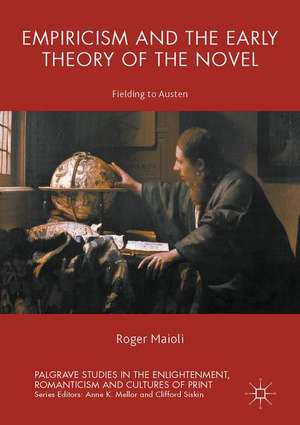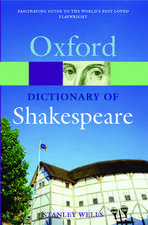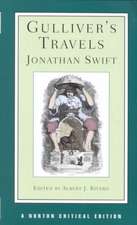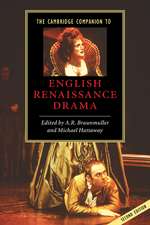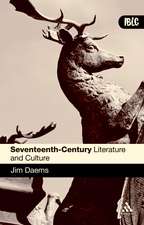Empiricism and the Early Theory of the Novel: Fielding to Austen: Palgrave Studies in the Enlightenment, Romanticism and Cultures of Print
Autor Roger Maiolien Limba Engleză Hardback – 24 mar 2017
| Toate formatele și edițiile | Preț | Express |
|---|---|---|
| Paperback (1) | 636.94 lei 6-8 săpt. | |
| Springer International Publishing – 17 iul 2018 | 636.94 lei 6-8 săpt. | |
| Hardback (1) | 639.41 lei 6-8 săpt. | |
| Springer International Publishing – 24 mar 2017 | 639.41 lei 6-8 săpt. |
Din seria Palgrave Studies in the Enlightenment, Romanticism and Cultures of Print
- 15%
 Preț: 640.88 lei
Preț: 640.88 lei - 18%
 Preț: 724.63 lei
Preț: 724.63 lei - 15%
 Preț: 699.59 lei
Preț: 699.59 lei -
 Preț: 214.57 lei
Preț: 214.57 lei - 15%
 Preț: 592.44 lei
Preț: 592.44 lei -
 Preț: 387.38 lei
Preț: 387.38 lei -
 Preț: 389.70 lei
Preț: 389.70 lei -
 Preț: 391.61 lei
Preț: 391.61 lei -
 Preț: 387.75 lei
Preț: 387.75 lei -
 Preț: 387.75 lei
Preț: 387.75 lei -
 Preț: 383.93 lei
Preț: 383.93 lei -
 Preț: 387.38 lei
Preț: 387.38 lei - 15%
 Preț: 638.43 lei
Preț: 638.43 lei -
 Preț: 386.81 lei
Preț: 386.81 lei -
 Preț: 385.84 lei
Preț: 385.84 lei -
 Preț: 389.88 lei
Preț: 389.88 lei -
 Preț: 214.96 lei
Preț: 214.96 lei -
 Preț: 381.98 lei
Preț: 381.98 lei - 15%
 Preț: 642.51 lei
Preț: 642.51 lei -
 Preț: 384.86 lei
Preț: 384.86 lei -
 Preț: 390.63 lei
Preț: 390.63 lei -
 Preț: 387.20 lei
Preț: 387.20 lei -
 Preț: 389.88 lei
Preț: 389.88 lei - 15%
 Preț: 499.59 lei
Preț: 499.59 lei -
 Preț: 389.70 lei
Preț: 389.70 lei - 15%
 Preț: 701.72 lei
Preț: 701.72 lei -
 Preț: 389.88 lei
Preț: 389.88 lei -
 Preț: 384.31 lei
Preț: 384.31 lei -
 Preț: 385.84 lei
Preț: 385.84 lei -
 Preț: 386.81 lei
Preț: 386.81 lei -
 Preț: 386.81 lei
Preț: 386.81 lei -
 Preț: 382.18 lei
Preț: 382.18 lei -
 Preț: 391.61 lei
Preț: 391.61 lei - 15%
 Preț: 527.79 lei
Preț: 527.79 lei -
 Preț: 388.13 lei
Preț: 388.13 lei
Preț: 639.41 lei
Preț vechi: 752.24 lei
-15% Nou
Puncte Express: 959
Preț estimativ în valută:
122.35€ • 127.74$ • 101.26£
122.35€ • 127.74$ • 101.26£
Carte tipărită la comandă
Livrare economică 05-19 aprilie
Preluare comenzi: 021 569.72.76
Specificații
ISBN-13: 9783319398587
ISBN-10: 331939858X
Pagini: 258
Ilustrații: XXI, 202 p.
Dimensiuni: 148 x 210 x 18 mm
Greutate: 0.39 kg
Ediția:1st ed. 2016
Editura: Springer International Publishing
Colecția Palgrave Macmillan
Seria Palgrave Studies in the Enlightenment, Romanticism and Cultures of Print
Locul publicării:Cham, Switzerland
ISBN-10: 331939858X
Pagini: 258
Ilustrații: XXI, 202 p.
Dimensiuni: 148 x 210 x 18 mm
Greutate: 0.39 kg
Ediția:1st ed. 2016
Editura: Springer International Publishing
Colecția Palgrave Macmillan
Seria Palgrave Studies in the Enlightenment, Romanticism and Cultures of Print
Locul publicării:Cham, Switzerland
Cuprins
Introduction.- 1. Maps of Worlds Unseen.- 2. David Hume and the Empiricist Challenge.- 3. Empiricism and Fielding’s Theory of Fiction.- 4. Varieties of Propositionalism.- 5. Laurence Sterne and the Experience of Reading Fiction.- Conclusion.- Works Cited.- Index.-
Recenzii
“Empiricism and the Early Theory of the Novel explores the impact of the empirical turn in philosophy on how imaginative writing could be justified in the seventeenth and eighteenth centuries. … Maioli’s conclusion demonstrates how eighteenth-century novel theory prefigures modern arguments about the value of the humanities. … It is a thought-provoking end to a thoroughly engaging book.” (Gillian Skinner, The BARS Review, Issue 52, 2018)
“Maioli’s book takes us back to eighteenth-century debates about the capacity for literature to teach us anything meaningful about the empirical world. … the value of Maioli’s book is that it ensures that we continue to think about why literature is valuable in a world in which it seems that value can never be taken for granted.” (Peter DeGabriele, Modern Philology, Vol. 116 (02), June, 2018)
Notă biografică
Roger Maioli is Assistant Professor of English at the University of Florida, USA. He holds a PhD in English from Johns Hopkins University and an MA in English Literary Studies from the University of São Paulo. In addition to articles in SEL, Eighteenth-Century Fiction and The Shandean, he authored the first Brazilian translation of Henry Fielding’s Joseph Andrews.
Textul de pe ultima copertă
This book is about the empiricist challenge to literature, and its influence on eighteenth-century theories of fiction. British empiricism from Bacon to Hume challenged the notion that imaginative literature can be a reliable source of knowledge. This book argues that theorists of the novel, from Henry Fielding to Jane Austen, recognized the force of the empiricist challenge but refused to capitulate. It traces how, in their reflections on the novel, these writers attempted to formulate a theoretical link between the world of experience and the products of the imagination, and thus update the old defenses of poetry for empirical times. Taken together, the empiricist challenge and the responses it elicited signaled a transition in the longstanding debate about literature and knowledge, as an inaugural round in the persisting conflict between the empirical sciences and the literary humanities.
Caracteristici
Argues that empiricism was much less receptive to the novel than previously acknowledged Looks at a wide variety of well-known writers, including Henry Fielding, Charlotte Lennox, Laurence Sterne, William Godwin, and Jane Austen Claims that empiricism retained its hold on the novel for much longer than scholars have thus far acknowledged
